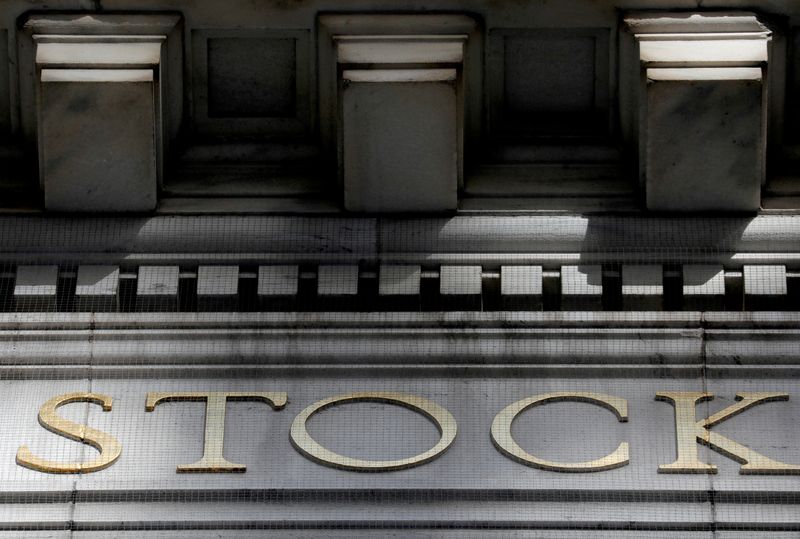 © Reuters. FILE PHOTO: Morning sunlight falls on the facade of the New York Stock Exchange (NYSE) building after the start of Thursday's trading session in Manhattan in New York City, New York, U.S., January 28, 2021. REUTERS/Mike Segar/File Photo
© Reuters. FILE PHOTO: Morning sunlight falls on the facade of the New York Stock Exchange (NYSE) building after the start of Thursday's trading session in Manhattan in New York City, New York, U.S., January 28, 2021. REUTERS/Mike Segar/File Photo
By Caroline Valetkevitch
NEW YORK (Reuters) - The S&P 500 index of U.S. shares will slip marginally between now and year-end as past interest rate hikes, troubled regional banks and weak earnings weigh on sentiment, according to strategists in a Reuters poll.
They see the benchmark index ending the year at 4,150, down slightly from Monday's close of 4,192.63, but still up about 8% from the end of 2022, based on the median forecast of 43 strategists polled by Reuters during the last two weeks.
Given the myriad risks to the market, including a possible U.S. debt default, 12 of 15 strategists who answered a question about the outlook for stocks said trading will be range bound in the coming three months.
"It's just a very uninspiring, low-growth backdrop, with tight monetary policy and earnings that will be down this year versus last," said Jonathan Golub, head of U.S. equity strategy and quantitative research for Credit Suisse, whose year-end target for the S&P 500 this year is 4,050.
The S&P 500 is up about 9% so far in 2023 after falling 19.4% in 2022.
Gains this year are largely thanks to big growth and technology stocks, which have rallied as other areas of the market have faltered, like regional banks.
The S&P 500 communication services sector is up 32% for the year to date, while technology is up about 28%.
But the recent collapse of Silicon Valley Bank and a few other regional banks has led to concerns banking instability will hurt U.S. companies that rely on loans from these smaller banks.
Investors are weighing the likelihood the Federal Reserve's aggressive approach to raising interest rates will push the economy into recession.
Golub said while he does not see a recession ahead, he expects companies to face margin pressure from higher wages, which could result in layoffs.
The latest poll forecast for the S&P 500 is down slightly from the 4,200 year-end 2023 target in a February Reuters stocks poll.
To be sure, some strategists are adjusting their targets upward. Savita Subramanian, equity and quant strategist at BofA Securities, this week raised her S&P 500 year-end forecast to 4,300 from 4,000.
S&P 500 companies are still expected to have had a second straight decline in quarterly earnings in the first quarter, or a U.S. "earnings recession," which last occurred when COVID-19 hit corporate results in 2020, based on Refinitiv data.
Analysts are forecasting full-year profit growth for 2023 of just 1.2%.
At the same time, the S&P 500's forward 12-month price-to-earnings ratio is now at 19 compared with 17 at the end of 2022 and a long-term average of about 16, according to Refinitiv data.
"Historically, when you've seen this level of valuation, it's normally associated with re-acceleration in earnings and also an outlook for double-digit earnings growth going forward. We don't see that happening," said Nadia Lovell, senior U.S. equity strategist at UBS Global Wealth Management, which has a 3,800 year-end S&P 500 target.
Based on the poll, the Dow Jones industrial average will finish the year at 34,230, up 2.8% from Monday's close.
In 2024, the S&P 500 will end at 4,500.
(Other stories from the Reuters Q2 global stock markets poll package:)

